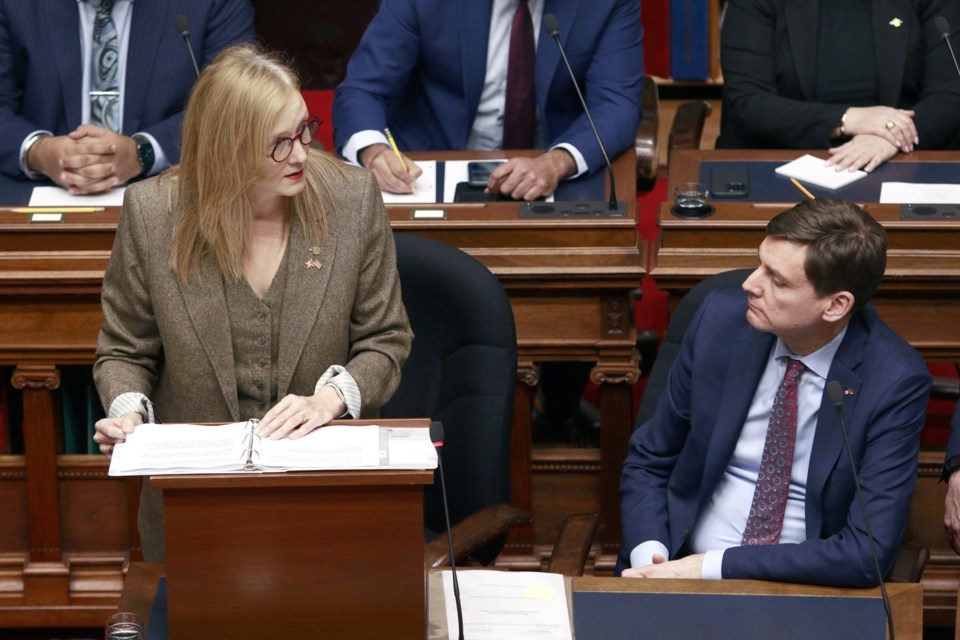British Columbia's final deficit for the fiscal year has come in at $7.3 billion, $564 million lower than the original projected number in Budget 2024.
The final deficit unveiled Thursday by Finance Minister Brenda Bailey is also about $1.8 billion lower than the most recent third-quarter forecast.
But the province's public accounts also show a $23.7 billion increase in taxpayer-supported provincial debt, bringing the figure to $99.1 billion. That's an increase of more than 31 per cent.
"We will continue to make the tough decisions necessary to make sure every dollar we spend has the greatest impact in the lives of British Columbians," Bailey said in a news release.
The ministry attributed the debt spike to the province having "supported people through climate emergencies and high costs."
It said that B.C.'s taxpayer-supported debt-to-GDP ratio was still lower than most other provinces at 23.2 per cent, compared with 41.6 per cent in Ontario, 41.9 per cent in Quebec and 22.1 per cent in Alberta.
So-called self-supported debt, incurred by revenue-generating Crown corporations and other entities, also rose from $32.1 billion to $34.8 billion.
Total provincial debt reached $133.9 billion, up by $26.4 billion or 24.5 per cent.
Bailey said B.C. was able to report a lower-than-projected deficit largely due to revenue from the Insurance Corporation of British Columbia.
But the higher revenues from ICBC and elsewhere, were offset by lower natural resource revenue, the ministry said.
Total revenue was about $2.5 billion higher than expected in the budget, while GDP grew by 1.2 per cent, lower than the Canadian average of 1.6 per cent.
The ministry said the province spent a record $10.4 billion on infrastructure including roads, hospitals and schools.
Among the projects were the Mills Memorial Hospital replacement in Terrace, the Broadway Subway in Vancouver, and high schools and student housing throughout the province.
The unemployment rate was 5.6 per cent.
"While our work to improve our fiscal position is underway, it is clear that, despite challenging economic conditions, this government is making progress on the things that matter to British Columbians, Bailey said.
This report by The Canadian Press was first published Aug. 7, 2025.
Chuck Chiang, The Canadian Press




